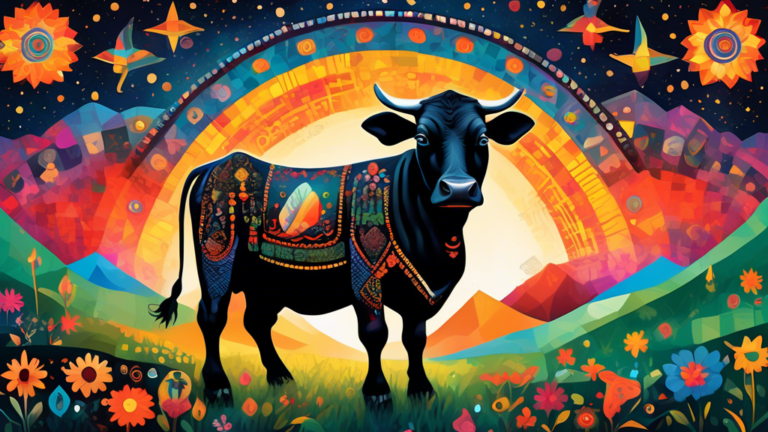Exploring the Symbolism of Wasps: Cultural and Spiritual Meanings
Introduction to the Symbolism of Wasps
Wasps are often viewed negatively due to their painful stings and aggressive behavior, particularly when compared to their more favored insect counterparts like bees. However, beyond their fearsome reputation, wasps carry a rich symbolism and are featured in various cultural and spiritual contexts around the world. Exploring the symbolism of wasps reveals a complex tapestry of meanings, from creation and development to communication and warfare.
Cultural Meanings of Wasps
Native American Beliefs
In many Native American tribes, wasps are seen not only as symbols of persistence and industry but also as creatures possessing the power of earth. The Pueblo tribes, for example, consider wasps as symbols of fertility and protection.
They believe wasps have the power to rejuvenate the soil and aid in crop growth. Storytelling that features wasps often emphasizes themes of community, cooperation, and the importance of working for the greater good.
Ancient European Perspectives
In ancient European cultures, wasps held varied significance. The Greeks, for instance, saw wasps as symbolic of order and discipline due to their structured social lives and complex nest-building behaviors. Aristotle referred to wasps in his writings, making observations on their hierarchical society and the roles played by different wasps, which were seen to mirror Greek society at the time.
Asian Interpretations
In parts of Asia, wasps are included in mythology and folklore, often imbued with attributes of industry and fierce protection. In Japanese culture, the wasp is seen as a symbol of warriors exhibiting courage, determination, and strategic thinking—traits highly valued by the Samurai. There is even a famous Samurai helmet designed to resemble a wasp, emphasizing vigilance and preparedness in battle.
Spiritual Symbolism and Metaphysical Associations of Wasps
Creation and Development
Wasps are creators—architects of their delicate, yet impressively structured nests. Spiritually, they are seen as symbols of development and creation, reminding us of the importance of personal growth and the pursuit of one’s goals. Their ability to build supports their association with manifestation, encouraging the development from thought to physical reality.
Communication
Communication is a key aspect of any wasp community. Spiritually, this emphasizes the wasp’s role in highlighting the importance of effective communication within a community or group setting. Symbolism drawn from wasp behavior encourages individuals to express their thoughts clearly and to work harmoniously within groups.
Protection and Defense
Wasps can be incredibly protective of their nests and are quick to defend against threats. This trait symbolizes the idea of boundaries and self-defense. In a spiritual sense, the wasp asks individuals to consider their boundaries, discern what is worth fighting for, and defend their choices and beliefs vigorously.
Renewal and Resilience
The lifecycle of a wasp, from larva to adult, symbolizes transformation and resilience, offering valuable lessons on renewal and adaptation. This can inspire individuals to embrace change and recover from setbacks with courage and determination.
Folklore and Modern Perceptions
In contemporary times, the understanding and appreciation of wasps continue to evolve. While they are often still feared due to their potential for aggression, increasingly, literature and media are beginning to explore their deeper spiritual and symbolic significance. This shift reflects a broader trend of reevaluating the roles that even the most disliked creatures play in our world.
Conclusion
In sum, wasps, despite their often negative reputation, hold profound symbolic meanings across various cultures around the world. From symbols of power and protection to emblems of communication and renewal, the humble wasp carries depth beyond its sting.
Recognizing and understanding these symbolic significances can help us appreciate wasps in a new light, acknowledging their contributions to the ecological balance and cultural heritage.
Exploring the Symbolism of the Black Cow in Various Cultures







